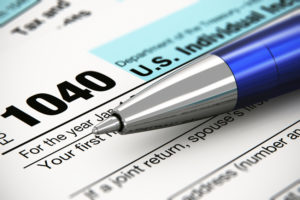
Around 15 million Americans owe back taxes to the IRS at any given time. Here are 10 tips to consider when you owe IRS back taxes:
- In order for the IRS to consider a payment plan, you must have filed all of your tax returns to date. Remember IRS Policy 5-133 which states that at the least, the last 6 years of returns must be filed. And yes, my office frequently work with non-filers who need additional time to prepare their returns. The IRS will work with a tax professional (within reason) to give them additional time to prepare the returns;
- IRS agents are trained to ask for full payment of the back taxes. But for most taxpayers, this simply isn’t possible. Therefore, a payment plan should be requested;
- For “full-pay” cases, in which the taxpayer can pay off the balance within 6 months, the IRS will agree to refrain from aggressive collections for 6 months while the taxpayer arranges for the full payment (perhaps the taxpayer might refinance his or her mortgage, or get a loan, for example). This will hold off the IRS from pursuing wage garnishments or asset seizures;
- If paying in full is not an option, then a payment plan should be pursued, and yes the IRS will agree to a payment plan. For taxpayers who owe less than $250,000, the IRS will consider a payment plan for the full amount owed for the duration of the remaining time allowed for collections (I wrote about the CSED here, which is the 10 year window of collections on IRS taxes). If the taxpayer agrees to an automatic direct payment, then the IRS will not require the taxpayer to disclose all of his or her income and asset information (IRS Form 433A or 433-F). However, the IRS will file a federal tax lien to protect its interest in real estate that the taxpayer might own;
- How to avoid a lien being filed if you owe back taxes to the IRS? Well, that will require you to be able to pay off the taxes over a 6 year period and have your actual tax amount owed under $50,000. Yes, sometimes, we have clients who make a large payment to get their balances under $50k because they don’t want a lien;
- If a lien has already been filed, then the IRS will agree to release the lien early if you are successfully making your payments via an automatic bank payment plan called a “Direct-Debit Installment Agreement”. If you make 3 straight monthly payments on the DDIA, and you get your balance under $25,000, then the IRS will agree to release its lien;
- Once you are in a payment plan, if you have a brief but unexpected financial hardship, you can request that the IRS skip a month for your payment;
- Once your payment plan has been established, if you wind up owing additional taxes in future years, that you cannot pay, then the IRS will deem the payment plan to be in default, and you will need to re-negotiate the payment plan amount;
- A payment plan is not like a legal contract that is set in stone. In other words, if your situation changes (medical problem or job loss), then you may be able to re-negotiate the terms of the payment plan, and
- the IRS will agree (after full disclosure of all assets, income and expenses) to a Partial-Pay Installment Agreement, whereby they are taking much less per month than will ever pay off the back taxes. Again, this is due to the desire of the IRS to at least collect some form of payment from taxpayers. And yes, taxpayers often see considerable tax debts be written off by the IRS due to the CSED.
Overall, I find that the IRS is willing to work with those who owe back taxes, as long as you are willing to work within their framework of rules.
If you have questions, please call my office to discuss in more detail at 412-920-6565.
